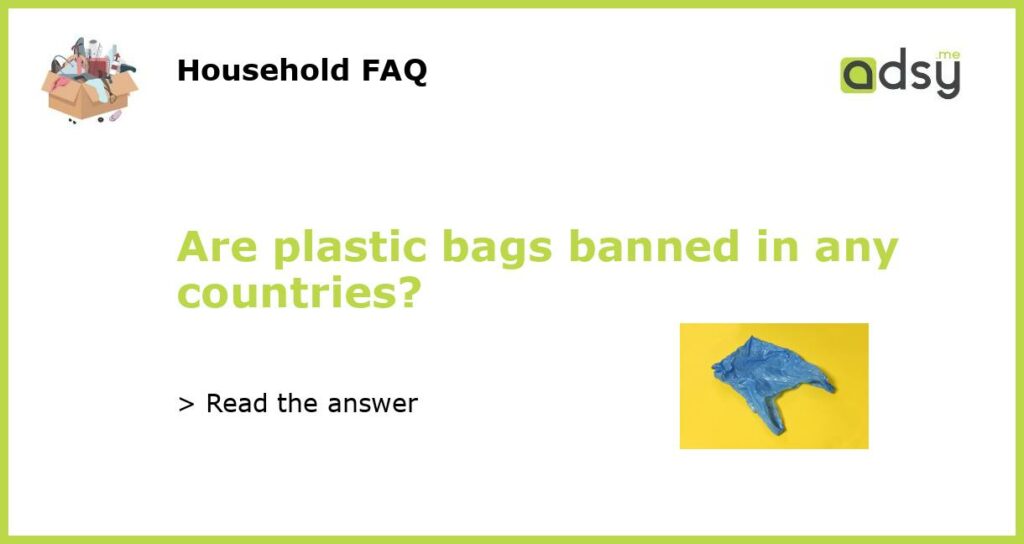Plastic Bag Bans: A Global Perspective
Plastic bags have long been a symbol of convenience and waste, but their negative impact on the environment is becoming increasingly evident. To combat this, several countries around the world have implemented bans on plastic bags, while others have implemented taxes or levies to discourage their use. In this article, we will explore the countries that have taken action to reduce the use of plastic bags and the impact of these bans.
Countries with Comprehensive Plastic Bag Bans
In an effort to curb plastic pollution, some countries have chosen to completely ban the use of plastic bags. Rwanda is often cited as one of the most successful examples, with a nationwide ban that dates back to 2008. Citizens are encouraged to use reusable bags or paper bags instead. Other countries that have implemented bans include Kenya, Morocco, and Bangladesh, all with varying levels of success.
Countries with Partial Bans or Taxes
While some countries have chosen a complete ban on plastic bags, others have implemented partial bans or introduced taxes to discourage their use. In countries like Ireland and Denmark, consumers are charged a small fee for each plastic bag they use, leading to a significant reduction in their consumption. In the United Kingdom, a 5 pence (roughly 7 cents) charge per single-use plastic bag has been successful in reducing usage by about 80%.
Challenges and Opportunities
Implementing a ban or tax on plastic bags is not without its challenges. Resistance from consumers and retailers, as well as concerns about the impact on businesses and the economy, have been raised in countries considering such measures. However, there are also opportunities for innovation and growth in the development of alternative packaging materials, such as biodegradable or compostable bags.
Global Impact and Future Outlook
The global impact of plastic bag bans is significant. According to the United Nations, an estimated eight million tons of plastic waste enter the world’s oceans each year, harming marine life and ecosystems. By reducing the use of plastic bags, countries are taking an important step towards reducing plastic pollution and protecting the environment.
Looking ahead, it is likely that more countries will follow suit and implement bans or taxes on plastic bags. As public awareness of the environmental impact of single-use plastics grows, there is increasing pressure for governments to take action. Additionally, international efforts such as the United Nations’ Clean Seas campaign and the European Union’s Single-Use Plastics Directive are driving global momentum towards reducing plastic waste.






